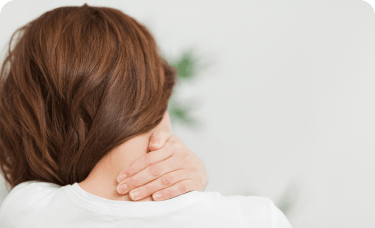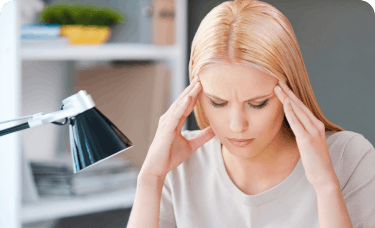Hormone levels fluctuate greatly over the course of a woman's life—as do the risk of migraines.
Of the many discomforts caused by a menstrual cycle, head pain may seem like an unfair addition. Yet this is a surprisingly common occurrence for more than half of women who have migraines.1
Research shows that the risk of migraines could be intricately linked with the rise and fall of hormone levels. Women who are most likely to experience migraines do so in the days directly before and after the first day of their period.1
Physicians often qualify and treat these migraines as “menstrual migraines” if they occur without aura and around the onset of a woman’s period during at least two-thirds of the monthly cycles.2 Menstrual migraines tend to be more severe, last longer, and are more likely to recur over the course of several days compared to non-menstrual-related migraines.3









